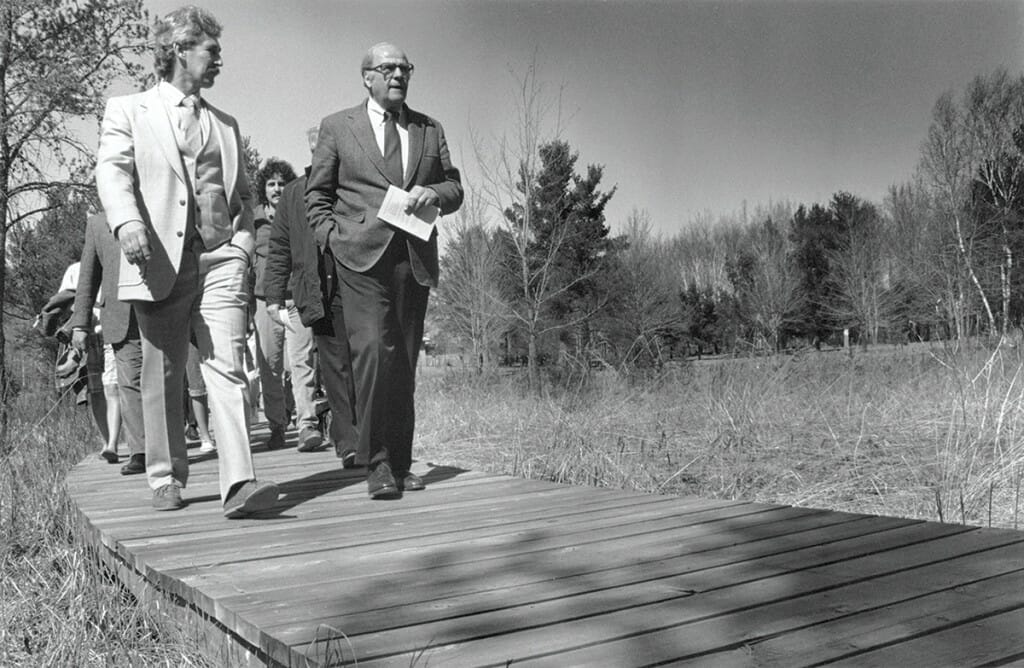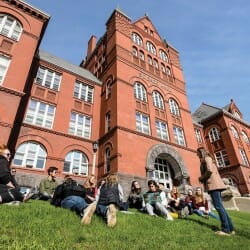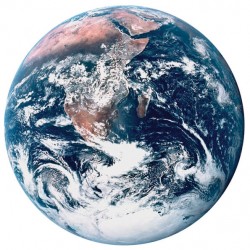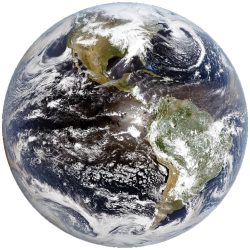UW’s Gifts to the Environment
Earth Day is going strong after 50 years, and so is the Nelson Institute.

Gaylord Nelson (right) celebrates Earth Day in 1988 with a tour of Wisconsin’s Schmeeckle Reserve in Stevens Point. UW Archives
UW–Madison’s Gaylord Nelson Institute for Environmental Studies is one of the most well-known legacies of Nelson LLB’42, the former Wisconsin governor and senator. But it’s not the most well-known legacy. That would be Earth Day, the environmental teach-in that Nelson sponsored beginning in 1970. Fifty years ago this April 22, some 20 million Americans, including students at more than 2,000 colleges and universities and thousands more primary and secondary schools, took part in a national conversation about conservation and the environment. (Because it was a teach-in, those students didn’t get a day off from school. If they had, the Earth might be more popular today. Well — hindsight.)
Nelson left the Senate in 1981, and his record showed how important he felt conservation is. He authored the Wilderness Act, the National Trails System Act, the National Wild and Scenic Rivers Act, and the National Environmental Education Act, and he worked to ban the use of DDT (drawing in part on the research of fellow Badger Joseph Hickey MS’43, who connected the pesticide to declining bird populations). He argued that environmental health and economic health go hand in hand. “The wealth of the nation is its air, water, soil, forests, minerals, rivers, lakes, oceans, scenic beauty, wildlife habitats, and biodiversity,” Nelson wrote. “That’s the whole economy.”
Five decades later, Earth Day continues to garner attention every year. On the parts of Earth that are inside Wisconsin, we try to remember Nelson’s connection with the holiday and his importance to environmental studies. That’s one of the reasons we decided to run this issue’s cover story. While environmental science seems to grow more important than ever, the UW continues to produce the people who further our understanding of the planet we live on.
Published in the Spring 2020 issue



Comments
No comments posted yet.